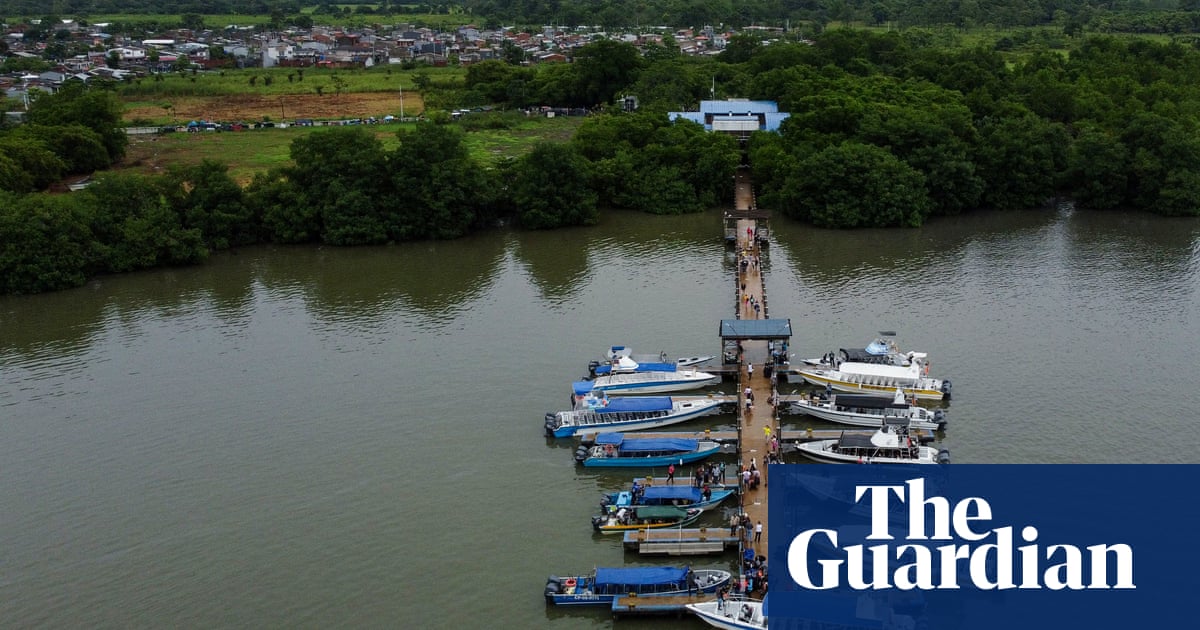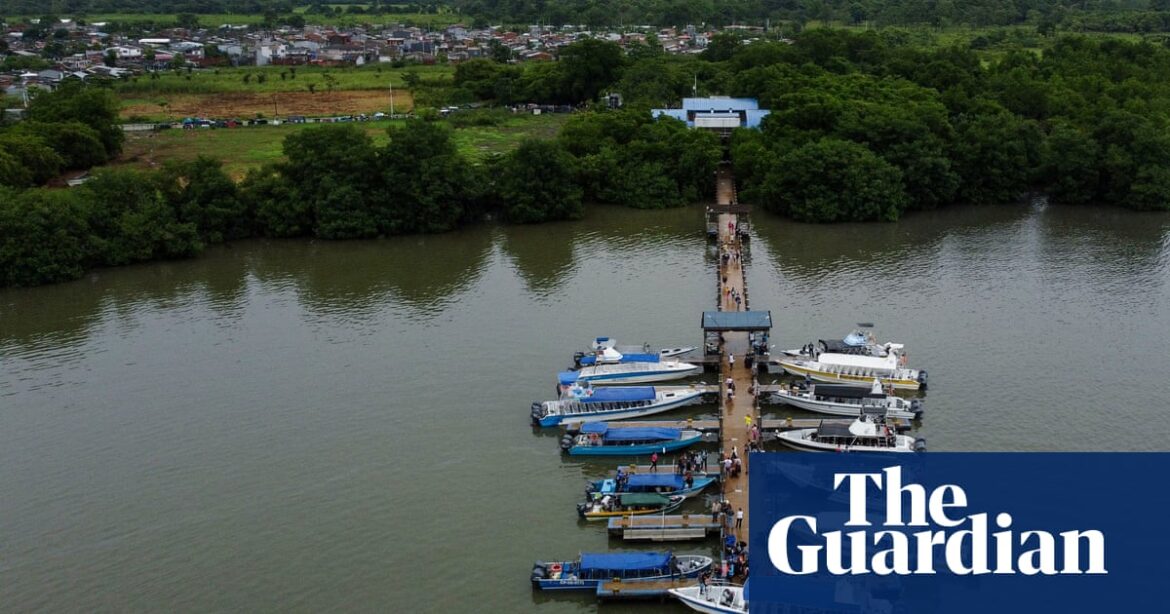
Movement towards the United States via a dangerous yet increasingly commonly used border crossing in the rainforest has come to a stop following the detention of two boat captains by the Colombian navy for smuggling migrants.
However, the effort to block transit through the Darién Gap, located between Colombia and Panama, has resulted in over 3,000 individuals being stuck in two isolated Caribbean villages. Authorities are concerned that this congestion could lead to a potential public health crisis.
Johann Wachter, the secretary of government in Necoclí, a town usually used as a stop on the journey north, announced that a large group of approximately 1,000 individuals are currently awaiting the resumption of ferry services across the Gulf of Urabá.
Wachter stated that Necoclí has a restricted population limit and efforts are being made to address the situation. The concern is that an excessive number of individuals could potentially impact public safety.
According to Wachter, two boat captains were apprehended by the Colombian coast guard last week for smuggling migrants. They had around 150 passengers on board but lacked the necessary documentation. As a result, the two main boat companies in Necoclí halted their operations and sought reassurances from local officials to avoid a larger crackdown.
It was uncertain whether the detentions were isolated occurrences or a reflection of a shift in the government’s approach in Colombia. This, along with other nations in the area, has been facing increasing pressure from the US to control immigration.
Migration is set to be a key and divisive issue in this year’s US presidential elections. Both Joe Biden and his likely rival, Donald Trump, were in Texas on Thursday visiting America’s southern border with Mexico.
Across the region, the scale of the problem has spiralled in recent years, with about 520,000 migrants crossing the Darién in 2023, up from 24,000 in 2019. Most who trek the Darién are fleeing Latin American countries embroiled in political and economic crises such as Venezuela, Ecuador and Haiti but migrants come from as far as Africa and China.
The Darién Gap is an unregulated area of dense forest that links Colombia and Panama. On the Colombian side, strict control is maintained by organized crime groups, however, when individuals enter Panama, they are often victims of theft and sexual assault.
In December 2023, there were 214 instances of sexual violence reported in the Darién Gap, which is seven times higher than the monthly average recorded from January to September of the previous year.
However, the journey through the rugged and thick rainforest remains the most viable option for many migrants who are escaping violence, oppression, or financial struggles in their homeland and aiming to reach the United States.
Despite the loss of approximately 50 migrants on the journey in the previous year, migration rates have continue to soar during the pandemic, with 500,000 individuals making the trek through the Darién in 2023.
Immigrants typically depart from either Necoclí or the nearby town of Turbo in order to cross the Gulf of Urabá and access the base of the Darién Gap. There, they pay around $350 to guides who assist them in making their way to Panama.
On Thursday, the United Nations Refugee Agency reported that approximately 3,500 individuals have been stranded due to the suspension of boat transportation across the Gulf. Among them, at least 850 have resorted to sleeping on the beach or streets.
Romely Pérez, 26, her husband and children aged eight, five and two, had expected to stay just a few days in Necoclí, but the Venezuelan family have now been sleeping in their two-person tent on the town’s beach for more than a week. Pérez said the family could not afford to spend any of their savings which they had borrowed and saved to pay their way through the Darién.
At times, her kids have the opportunity to have a free meal at a nearby charitable organization. In return, she was cleaning plates at the back of a restaurant by the beach, in order to receive a lunch platter for her and her spouse.
“I do not consider this to be living,” she stated. “The concept is to constantly progress and not remain stagnant in one location,” she explained. “It is truly terrible to exist in such a manner.”
Source: theguardian.com



